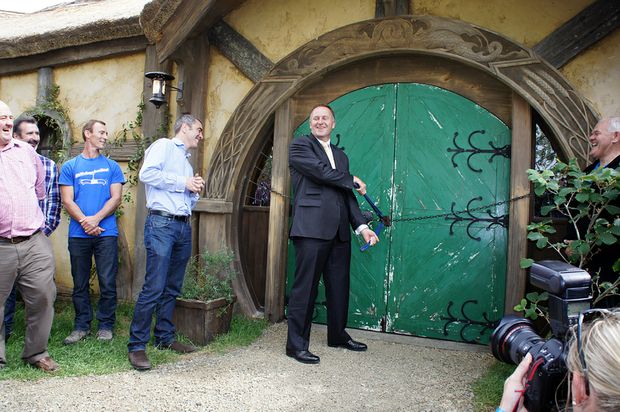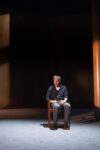For a small nation, New Zealand has some strong cultural exports. You might not know it, but 1995’s “How Bizarre” by one-hit-wonder OMC came from a group of south Aucklanders — Pacific Island youth from Otara, one of the city’s poorest areas and some of the country’s highest crime rates.
But ask most people and they’ll probably come up with Flight of the Conchords and The Lord of the Rings. A good number of music nerds probably know the old Flying Nun Records bands, and most of the world now knows Lorde, from the opposite end of Auckland to OMC — the wealthier, whiter side.
But unless you live in New Zealand or follow its politics, you probably don’t know Prime Minister John Key. In fact, at Nelson Mandela’s memorial service in December, a photo of Key sitting with David Cameron was captioned “British Prime Minister David Cameron (R) laughs with an unidentified guest” by the New York Daily News website.
And while he should probably remain an unidentified guest, let me tell you about the man a team of journalists couldn’t be bothered to identify. Because after all it is an election year in New Zealand and it’s always good to know a bit of world politics.
If you keep a list in your head of which countries have weasels for leaders and which have “pretty good but he or she is still a politician so I’m skeptical” leaders, you might put Key under the former and, say, Uruguay under the latter. Of course it’s not good to essentialize a country based on cultural exports (we hate when America is boiled down to our politics or our reality shows), but people do it, which is probably why Key makes a lot of New Zealanders cringe.
And for an American looking at New Zealand politics over the past few years, it’s hard not to see Key as something of a George W. Bush-type leader.
As a man, politics aside, he comes across as a bit of a schnook. He muddles his words, like when, at the opening ceremony for the New Zealand-hosted Rugby World Cup he called a trophy a “trotie” as the whole rugby-playing world watched.
His Key-isms are many, and there are continuous memes about him. When talking to media, he frequently has convenient “brain fades.” He even has an impersonator, who does bits on YouTube and TV.
Recently a musician acquaintance of mine in Auckland sent in a NZ Official Information Act request, asking for “any evidence to disprove the theory that Mr. John Key is in fact a David Icke-style shapeshifting reptilian alien ushering humanity towards enslavement.” Key’s office formally responded, saying there was “no official information” available on the subject.
But news got out about the response and journalists put the question to Key himself, who responded, with his usual John Key smirk: “To the best of my knowledge, no. Having been asked that question directly, I’ve taken the unusual step of not only seeing a doctor but a vet, and both have confirmed I’m not a reptile. So I’m certainly not a reptile. I’ve never been in a spaceship, never been in outer space, and my tongue’s not overly long either.”
But he is a bit of a reptile, a snake in the grass. He’s the embarrassing, uncool dad of New Zealand. He ruins your funny David Icke joke by actually responding to it, rubbing his scent all over your territory. He sends tweets to Lorde, which she wouldn’t dare retweet. When New Zealand won that same Rugby World Cup in 2011 and Key was being ignored at the trophy ceremony, he awkwardly jammed his hand into a handshake between the All Blacks captain and the chairman of the International Rugby Board at their moment of glory. He’s always a bit in the way, but you can’t say anything.
***
At the last election in 2011, it seemed like anyone with a pulse should have beaten Key. But, like with Bush in 2004, the opposition was boring, bland, beige. The Labour Party, New Zealand’s mainstream center-left party, put forward their John Kerry, Phil Goff. Goff just couldn’t do it. When he was talking you could be thinking: “Did I remember to lock to door and feed the dog? Is someone talking?” And like Kerry to Bill Clinton, Goff couldn’t live up to the party’s savior figure that had led the country before the shift in power, in this case Helen Clark, New Zealand’s Labour Prime Minister from 1999–2008.
At the end of the day with Key it’s the “he’s the kind of guy you could have a beer with” factor, as they say. And that must be what people have voted on, because Key has done some pretty unpopular things in the past few years.
Firstly, he sold off historically state-owned assets, mainly power and mining companies, but with plans to partially privatize national carrier Air New Zealand as well. Key and the National Party ran on the asset sales program in the 2011 election — a proposal to privatize 49 percent of five state-owned companies — but it hasn’t really been a success. A recent referendum showed 67 percent of voters opposed the sales, and investors have also been disappointed, with shares trading lower than when they were floated.
Key faced harsher controversy over New Zealand’s spy agency, the GCSB, when it raided the Auckland mansion of Kim Dotcom, the obese, eccentric billionaire German who founded website Megaupload, shutdown by the FBI for alleged piracy violations. The spying was deemed illegal, which came around the same time as revelations by Edward Snowden about the NSA’s own overreach.
And while New Zealand, like the US, is changing as Millennials are joining decision-making society (gay marriage was legalized here less than a year ago), the Labour Party is still struggling. With all the parallels to American politics, Labour is still lacking its Obama figure — someone who can excite voters like Obama did in 2008, even if his followthrough has been somewhat disappointing.
The party has put forth David Cunliffe this year, and while he is a much more energized and forthright leader than Goff in 2011, he can be vainglorious and a bit lacking in the “regular-bloke-I-can-have-a-beer-with” charisma that you need for the “average working Kiwi” vote. Labour has not polled well, but some of the latest polls have still been too close to call.
Part of the problem is that the Labour Party is going through a bit of an identity crisis, which — while it may not be as bad as that of the Republican Party in the US — makes it all too easy for Key and National to paint them as the silly, mixed-up lefties. Shortly after Cunliffe got the vote to lead the party into the election, he announced a string of policies that it turned out, after grilling by the media, hadn’t fully been worked out. He then proceeded to criticize Key for living in a mansion worth nearly $10 million, trying to appeal to the “regular Kiwi bloke,” only to be called out for living in a $2.5 million mansion himself.
It’s also worth noting the Green Party gets about 12 percent of the vote in New Zealand. It’s the biggest party after National and Labour. Because of New Zealand’s mixed member proportional representation, each party’s share of seats in Parliament is determined by its share of the party vote nationwide. That means the small parties still get in, and the big parties have to form coalitions to govern when they have fewer than half the seats. Cunliffe has gone back and forth on a Greens-Labour coalition, which makes sense numbers-wise but is tricky perception-wise with mainstream voters (damn greenies).
But of course the Greens are whom a lot of the left-leaning Millennials are voting for. More than ever the left is not just one thing, and perhaps the Labour Party is struggling to deal with that a bit. Cunliffe is far more promising than previous recent Labour candidates, but he’s stuck in between two sides of Left-Wing New Zealand.
Jacinda Ardern, a young Labour MP with a lot of buzz and promise, comes to mind as someone who might bridge the gap for the party in the future. This is a woman who, parliamentarian or not, is pretty, pretty hip. She recently DJed a music festival headlined by Cat Power and Earl Sweatshirt, and I’ve seen her at shows for Times New Viking and Neutral Milk Hotel and at a party or two. Politically she is increasingly popular because she articulates traditional Labour values well: support for the working-class, union families who feel National is out of touch. She knows where the new left is coming from and knows how to translate it to a mainstream party.
But until the party can move ahead with someone like Ardern, it is scrambling to focus and gain ground ahead of the September 20 election. And seeing as the country has a much shorter election season, and there are still six months to go, the babies on the campaign trail are yet to be kissed and the votes are yet to be cast, so it’s still anyone’s game.
This post may contain affiliate links.









